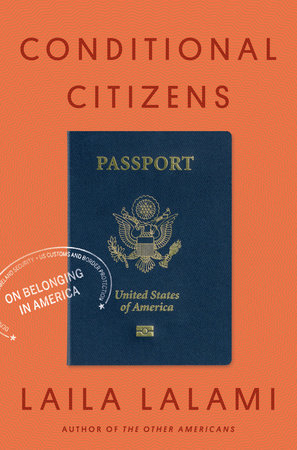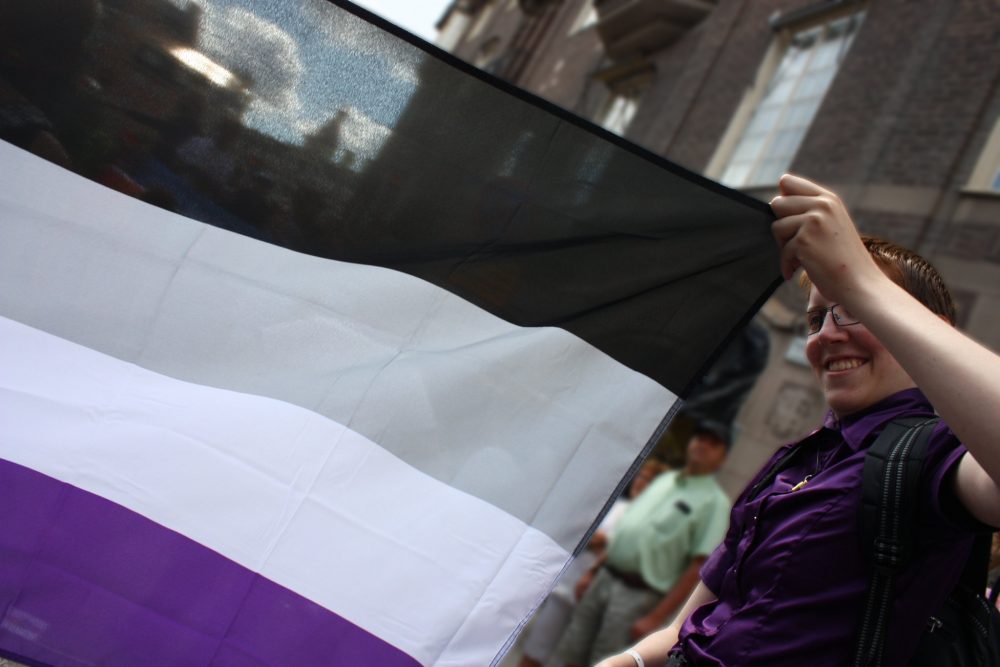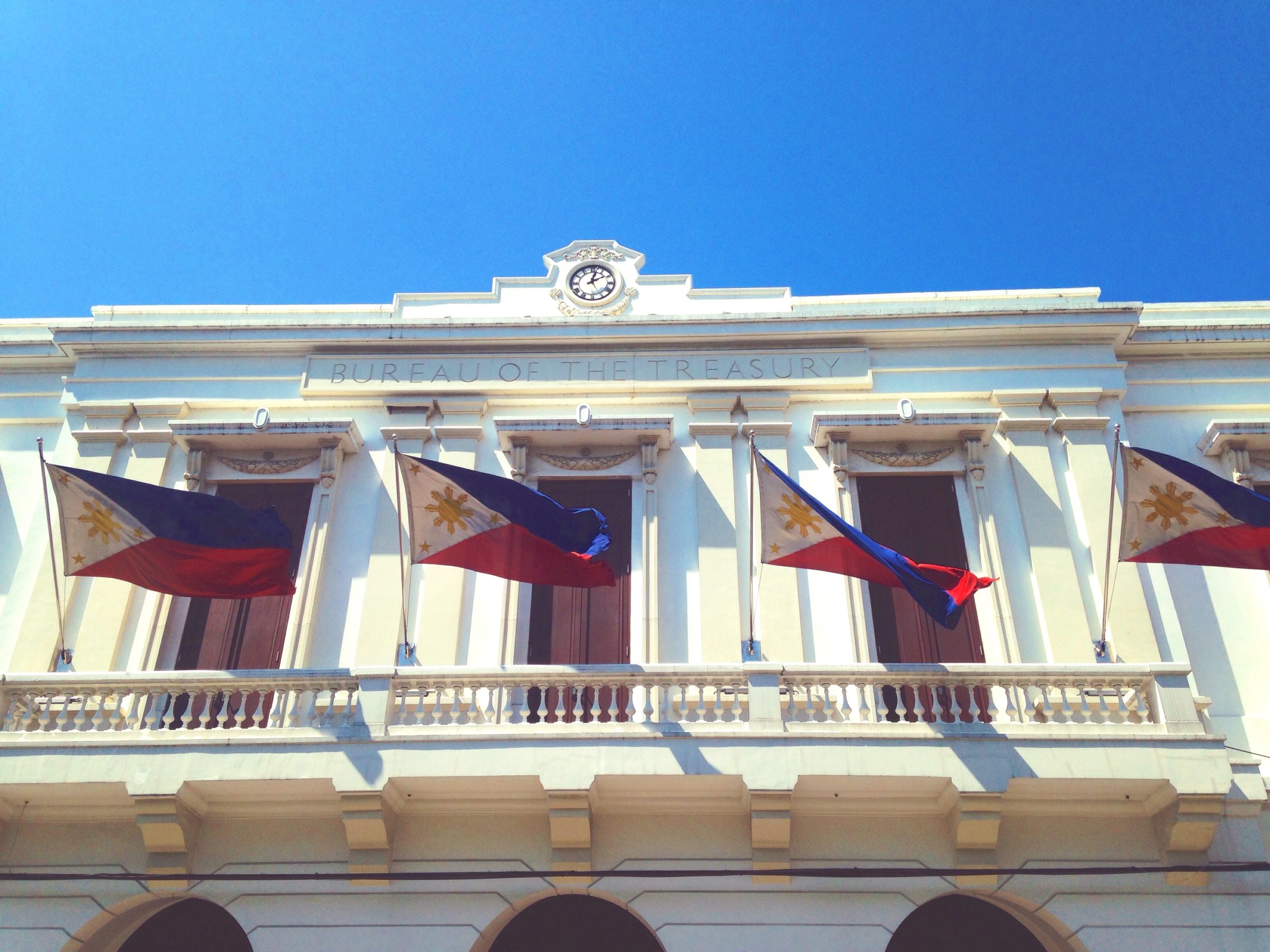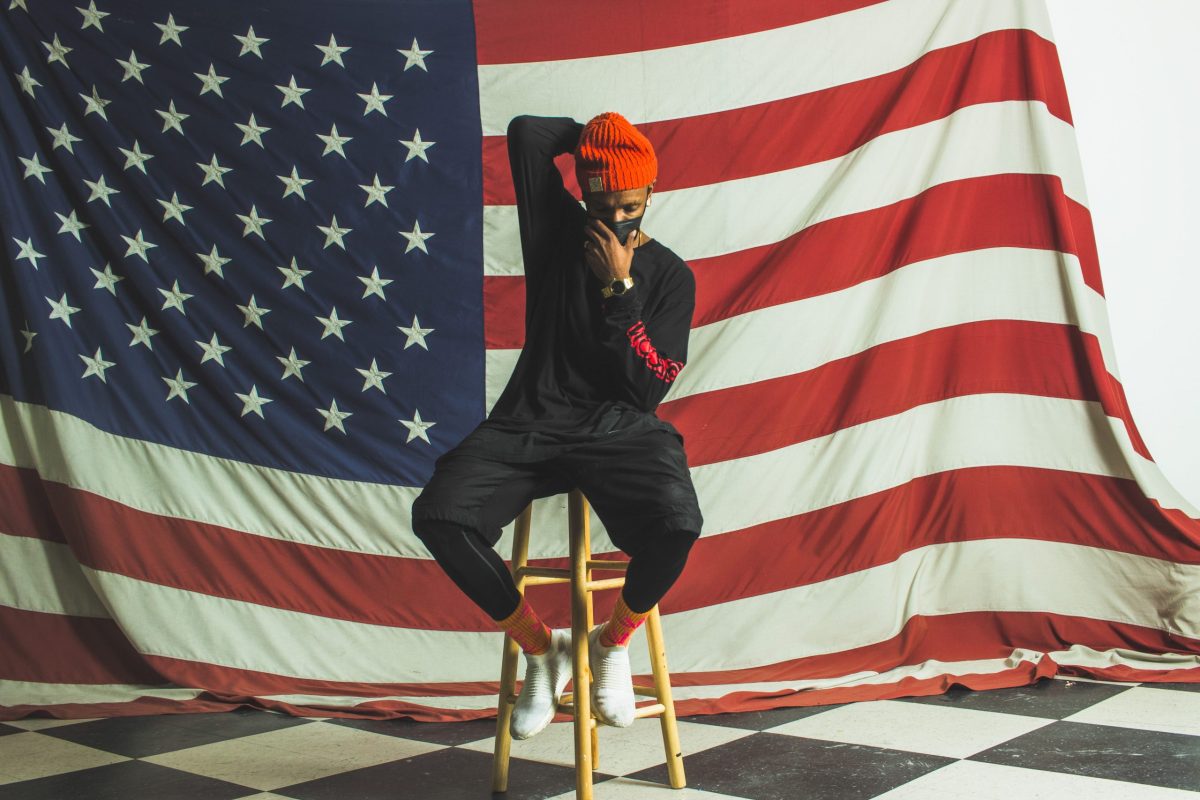Interviews
America Has Never Wanted Non-White Citizens
Laila Lalami, author of "Conditional Citizens," on how keeping the United States healthy means working to ensure that everyone is equal

In Conditional Citizens: On Belonging in America, her first book of nonfiction, novelist Laila Lalami meditates on what it means to be American if you’re not a white man. In presenting her idea of “conditional citizens,” Lalami begins with her own trajectory becoming a citizen after her marriage to her husband. She writes:
Being a citizen of the United States, I had thought, meant being an equal member of the American family—a spirited group of people of different races, origins, and creeds, bound together by common ideals. As time went by, however, the contradictions between doctrine and reality became harder to ignore. While my life in this country is in most ways happy and fulfilling, it has never been entirely secure or comfortable. Certain facts regularly stand in the way, facts that make of me a conditional citizen. By this I mean that my relationship to the state, observed through exposure to its policies or encounters with its representatives, is affected in all sorts of ways by my being an immigrant, a woman, an Arab, and a Muslim.
In the book’s eight essays, Lalami weaves her own personal history with reporting on legal and historical realities of how religion, race, class, and gender affect a person’s Americanness. I spoke to Lalami about the country’s determined forgetting of history, the questions she gets (about ISIS) at her readings that white writers usually don’t, and when she feels most American.
J.R. Ramakrishnan: In Conditional Citizens, you write that there is nothing more American than forgetting the past, as well as of the privilege of ignorance. Who did you write this book for?
Laila Lalami: I wrote it for conditional citizens—the people have had experiences of exclusion, who have had experiences of feeling like they weren’t quite American enough or not American in the right way, or American only if they do this or that. The book is an attempt to connect the experiences of a person who’s excluded, say, for example, because of national origin, with experience of somebody who’s excluded because of gender with the experience of somebody who’s excluded because of race, with the experience of somebody who’s excluded because of class.
It really is trying to tease out commonalities between all of these groups. And this absolutely, I think, connects with the sort of idea of the obliteration of the memory which is what you started your question with. The idea of America depends completely on forgetting and on making it seem as if everybody is equal. When you look at the founding myths of America and then look at how little is taught about how the country was truly founded and what ended up happening. If you look at how the Civil War is taught in the South, or if you look at how slavery in many parts of this country, there is a great deal of forgetfulness, and it’s not unintentional. It absolutely is intentional. And the idea is to convince people that they are uniformly and equally American. And the reality is that they’re not.
The reality is that citizenship from its inception up until today has been a benefit not shared equally. It was something that was meant initially for “free white persons.” And today, the highest benefits of citizenship really are still available to rich white people, right? Nobody could really successfully argue that someone like Bill Gates has the same access to rights and liberties as a person who’s been recently naturalized and is from Iran, for example. Or that he has the same rights and privileges as somebody recently released from prison, and now has a felony record that prevents them from voting. I wanted to create connections between these different modes of experiencing this country.
JRR: What struck you the most about the nature of citizenship in America in your research for this book? I was quite unaware of the precarity of being born near the southern U.S. border and how this could call into question your American citizenship.
The reality is that citizenship has always been a benefit not shared equally. It was something that was meant initially for ‘free white persons.’
LL: When you think about citizenship, you often think of something very basic, like the right to vote. Obviously, I’m well aware of what’s been going on with efforts like voter ID laws to limit rights for a lot of people, disproportionately black, Hispanic, and indigenous people. So when I began writing, I was prepared for this part. But then, once I started looking at the border, and how citizenship is lived in areas close to the border, it just became a lot more sobering. It made me realize how much of what we take for granted is not to be taken for granted. These rights are constantly under threat or up for debate. We have to be asserting them and fighting for them that it doesn’t go away. So, in terms of the border itself, there’s so much. For example, there have been cases where border agents at the wall have shot at Mexican nationals across the border and been sued for that. [In April,] the Supreme Court basically said that people who have been shot at have no right to sue the border officers in U.S courts. This basically means that they can kill and there will be impunity, right?
So, there are so many examples, but one that really was shocking to me is discovering how in the 70s, the Supreme Court decided that in the matter of checkpoints that border agents can use ancestry as a way to determine whether or not to pull you for secondary inspection. That’s basically a way to say that racial profiling is okay along the border. This is what I mean when I say that a lot of the rights that we take for granted suddenly become up for debate when you approach the border, for example, the right to be safe from unreasonable searches, or the right to sue for redress in case you’re the victim of violence from a border agent.
JRR: To your point about erasure, your novel The Moor’s Account fills in what seems like a major gap of American history. You talk about being on tour for that book’s promotion about having to explain ISIS to a white audience member. The way you draw parallels between ISIS and the KKK is brilliant. You note that white writers are not asked to explain the KKK or white supremacy.
LL: I think that there is something about the status of being a conditional citizen that is something that keeps you constantly having to justify or explain yourself. So, you know, whereas somebody who is truly an equal citizen doesn’t have the responsibility to just explain. So, if you’re somebody who is Arab and Muslim, then you are going to get those questions. And I imagine that African American, Hispanic, and Asian authors would have different questions. Anybody who’s not a white male.
You can see this too in broader literary conversations. For example, in literary programming, who is put on panels to talk about craft and who is put on panels to talk about writing from the Other? The work of black writers, indigenous writers, writers of color is taken mostly to be ethnology. The work of white writers, meanwhile, is treated as art, creative and reflective of their imagination. In writing about this encounter, my hope is to get people to really see how even in supposedly liberal spaces and sometimes very progressive spaces, you can still come up against these expectations that people have of you. And that really brings up this idea that you’re different. You’re not quite the same as everyone else.
JRR: Well, that story certainly gave me some ideas for Q&A time when I am next at a reading by a white Southern writer! You move from race to discuss class and how it’s seen as an outcome of personal choice. This seems to be the flip side of the American Dream and the bootstraps mythology.
LL: One of the foundational myths of America is that your life is completely under your control. Circumstance really doesn’t play a part in it. Circumstance can be your present circumstance, or it could be your historical circumstance. None of that should stand in your way, the argument goes, and anybody can work hard and make it. And the reality is, the data, in fact, shows us that that’s not true. One of the biggest predictors of a person’s success in America right now is the zip code in which they’re born. So if you’re born in a very wealthy zip code, chances are your future income level is going to be much higher than if you were born in a poorer zip code. If it’s really true that someone could pull themselves up or down depending on their hard work, you wouldn’t have this correlation. There’s plenty of data to show it. For example, people who score highest on the LSAT are the ones who have spent a lot of money on prep courses. The higher your LSAT, the higher chances are, you’re getting into certain schools. If you get into certain schools, the higher your chances are of landing that interview that job and achieving success later in life. It goes on and on and on.
If I want America to be healthy, it means I have to work to make sure that everyone is equal.
One of the biggest and most dangerous myths that America not only lives by and propagates to the rest of the world is this idea that here anybody can make it. And so, because of that, when people, no matter how hard they work are not millionaires by the age of 25, or whatever, then they tend to feel like they have failed. Conversely people who are millionaires by the age of 25 tend to think that they’ve made it all on their own, completely based on their hard work. That gender, race, gender, class played no role in how they got to where they got. This lie that we’re all living by: if you’re poor, it’s because you didn’t put in enough effort and if you’re rich, you put in a lot of effort. It’s a very poisonous idea. As I mentioned, there’s just so many factors that go into determining class but it would be foolish to think that if you’re successful that you got there solely on your own and if you’re unsuccessful, but you got there on your own. Circumstances do play a role. The sooner we address those circumstances, the better our chances are at addressing poverty.
JRR: You write about a moment where you were on a plane for an event for The Moor’s Account and a white man next to you started talking about how Koreans were overwhelming his neighborhood. When you told him you were an author, he got excited and said he’d buy your novel. Do you think it’s possible to change people’s minds through literature?
LL: Yeah, I have to tell you that when he started off talking about Koreans, I was so upset. I let him talk and then I went back to reading my book for the rest of the flight. But he wasn’t done talking to me—I think he was very curious. I was shocked when he asked, “What’s the title of your book?” He said he’d buy it. This happened maybe a week or two after the 2016 election. It gave me hope. It made me feel that if we talk to people without necessarily immediately trying to convince them, if you give them a little bit of time, you might have a little bit more chance of bringing them around to your point of view. Now, having said that, I do think that there are limits to argument and there are limits to how much you can bring people around. For example, somebody who doesn’t believe that I’m human, there is very little that I can do to change that person’s mind. And frankly, I don’t view it as my job to change that kind of a person’s mind. My humanity is not up for debate. Once you are at that extreme, I don’t think dialogue is going to do much but for others who are maybe not as far gone than I think it is sometimes possible.
JRR: You are one of the originals in terms of presence in the online literary world. I imagine you must get some intense trolling and comments. You write in the book about the post 9/11 surveillance of Muslim communities. Are you concerned about speaking to the truth and being watched in the current state of democracy in the U.S.?
If somebody doesn’t believe I’m human, I don’t view it as my job to change their mind. My humanity is not up for debate.
LL: I am and I am not paranoid to be concerned, especially if you look at what the NYPD did under Michael Bloomberg, which is that for several years, it spied Muslims in New York. They placed informants in mosques, informants in students’ associations, and even lied in order to get access to private homes and go inside and see what’s going on in the private home, what kind of books they had on the shelves. what kind of watching shows they were watching. We obviously found out about it after it had been going on for several years. Just last week, The New York Times reported that Eric Prince, he of Blackwater fame, recruited former US and British spies to help infiltrate liberal groups. And so, it’s not in our heads.
Why shouldn’t a reasonable person assume that they are being watched? Writers and intellectuals should assume that what they are writing, what they are posting, and what they are saying in public spaces and their private messages, that all of that is being watched and can be used against them. On the other hand, I say what I think. I’m posting things because I think about them and believe them so you kinda have to stand by your words really. There’s nothing you can do about the surveillance but it is true that it is absolutely happening.
JRR: I interviewed Suketu Mehta, whose book This Land is Our Land seems to be in conversation with yours. In his book, and I think what I understood from yours, there is a commitment to the ideal of America despite its flaws. Even just now you saying that you write without fear, it seems that America is still the place to be doing that.
LL: Well, as of now, as of now, we are still protected by the First Amendment. So we’re going to continue doing that. I think that there is something deeply seductive but also deeply true about the universal ideas in the Declaration of Independence, that all men are created equal, right? Obviously, we have to update “men” to “everyone.” Everybody is going to claim that ideal. The question is who’s actually going to live with that ideal? I think we all come into the world with some kind of, I’m afraid to say, innate, but I don’t know how else to say it, but some desire for justice, some belief in justice, a belief that we’re all the same. The question is in terms of practice, is America living up to that promise? And obviously, the short answer is no, not in its history and not in its present moment.
But I think that the reason that people do have faith is that you want to maintain both of those ideas in your head, the fact that history has shown us that America has a voice to those ideals, but it also has made progress towards those ideals. I think all we can do during our life on earth is to try and move forward and try as much as we can to make those ideals true.
JRR: You’ve been an American citizen for 20 years now. When do you feel most American these days?
LL: When I am speaking for immigrant rights, or for immigrant kids, or if I’m advocating for people who are incarcerated, that’s when I feel the most American—when I’m able to exercise these rights that I gained access to when I became a citizen. I think that the idea that love is uncritical is, especially love for one’s country, is dangerous. If you care about something, you want it to be healthy and safe. If I want America to be healthy, it means I have to work to make sure that everyone is equal.









